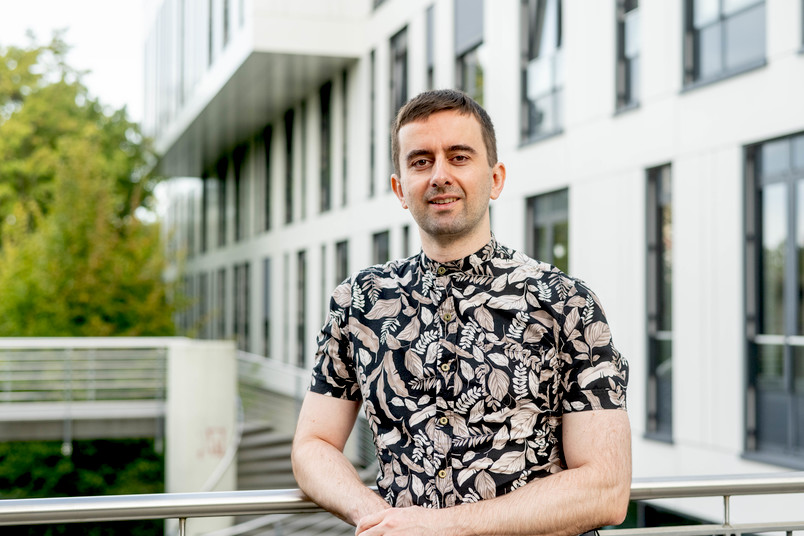Paper is piled up on the window sill of Christian Lehn's office - bound, loose, stapled documents are distributed in 15 neat piles. On the one hand, this is because he has only recently been at the Ruhr University in Bochum and is still waiting for the cupboard for his new office. On the other hand, it is because of his discipline. Lehn is a newly appointed professor of geometry in the Faculty of Mathematics. No high-performance computers or algorithms help with his work; it takes place solely in his head and on paper. “Although in everyday life I of course use the computer for notes and don’t sit there with pieces of paper and a pencil,” he adds. But to consult the formulas he needs for his work, he reads through the documents on his windowsill.
Lehn has been at the Ruhr University Bochum since October 2023 as an expert in algebraic and complex geometry. He describes geometric objects using algebraic equations. “In this context, complex does not mean that it is particularly difficult, but rather that I use complex numbers,” he adds.
In his research, Christian Lehn searches for geometric spaces with certain, predefined properties. In a first step, he tries to use these defining properties to limit the possibilities of what such a room could actually look like. “In the second step, I then ask myself: Are there any geometric objects that fulfill these properties? If yes, how many? And how can you produce them?” explains the mathematician. “It is fascinating how an initially abstract theoretical structure can lead to something so concrete. In the end, there is virtually no difference between theory and practice - although I realize that what I call practice must still sound like very abstract theory to others," he adds with a laugh.
The mathematician is alluding to the fact that the objects that his formulas produce cannot be visualized. Because they have at least four dimensions, often more. He is not alone with this type of work at the Ruhr University. “In Bochum, a lot of people deal with geometry, the faculty is very broad,” he says. “When I told you about my upcoming move, many colleagues spoke highly of the quality of research here.”
And there was another reason that attracted the native of Hesse to the Ruhr area: “In North Rhine-Westphalia there are many universities with good mathematics faculties in a small area,” says Lehn. “I have already started a joint seminar with a colleague from the University of Duisburg-Essen – something like that happens all the time here.”
To person
Christian Lehn studied mathematics at the Johannes Gutenberg University in Mainz, where he also completed his doctorate in 2011. He worked as a postdoctoral researcher in France from 2011 to 2014 - first in Grenoble, then in Strasbourg and finally, supported by a research grant from the German Research Foundation, in Paris. Lehn then returned to Germany and worked as a research assistant at the Leibniz University in Hanover. From 2016, Christian Lehn was initially a junior professor, and from 2021 he was a professor of theoretical mathematics at the Chemnitz University of Technology. In 2023 he accepted a professorship in geometry at the Ruhr University in Bochum.
